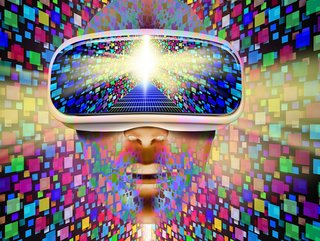IRIS Software Group: Connecting the metaverse with IoT

First introduced in 1999, the internet of things (IoT) connects thousands of devices such as thermostats, voice activated speakers and medical devices, to a wide range of data.
Now, IoT is set to transform the metaverse at it seamlessly connects the 3D world to a large number of real-life devices.
IRIS Software Group, one of the UK’s largest private software companies, provide software solutions and services that substantially enhance operational compliance, efficiency and accuracy.
Here, the company’s Head of Portfolio Modernisation, Jonathan Priestley, shares his insights into IoT and the metaverse.

What role do you imagine IoT will play in the metaverse?
IoT will enable us to overcome one of the greatest challenges we face in the metaverse – how to map data from real life, in real-time, into a digital reality. IoT’s main role will be to bring the outside world into the digital realm.
There’s no doubt more advanced IoT architectures will be needed in the metaverse and its immersive virtual environment. However, the real hype of the metaverse is in augmented reality (AR), not virtual reality (VR). IoT will enable users to be more than just interconnected between the virtual and real world, it will create a digital twin of people in the metaverse – what we are starting to know as a person’s ‘avatar’.
How important is data and data collection in the metaverse?
Data is the new gold. It is the doorway to information value in the digital world. Without data, the metaverse is just a blank canvas of the world in an online forum.
What will most likely make or break the metaverse’s success will be the capacity to capture data from the ‘real’ world, including the mass ingestion of data from IoT devices. This data not only needs to be represented in a meaningful way in the metaverse but must also be responsive and properly secured.
To support their metaverse strategy, 84% of leaders across the IT, telecom, and technology sectors say they are planning to look at procurement data intelligence solutions to be deployed inside virtual worlds in the next two years.
How can IoT connect the metaverse to real-life devices? Why is this important?
The real connection between IoT and the metaverse relies on cloud technology. Pioneering cloud providers like AWS and Microsoft have enabled infinitely scalable access to the cloud and the collection and processing power this provides organisations.
Cloud-native platforms will drive innovation in the coming years, enabling forward thinking developers to build new application architectures that are resilient & agile to change so they can quickly adopt the metaverse.
Without cloud technology, there wouldn’t be the processing power or speed required to send the data collected by IoT devices to the metaverse in real-time. It’s this underlying infrastructure of IoT devices, data analytics and services, built on top of cloud technology, that will enable us to have a real-time avatar in the metaverse.
Central to the metaverse’s success will be the seamless interoperability between AR and IoT data, underpinned by the cloud, to unlock new, advanced applications that will help solve real-world problems.






